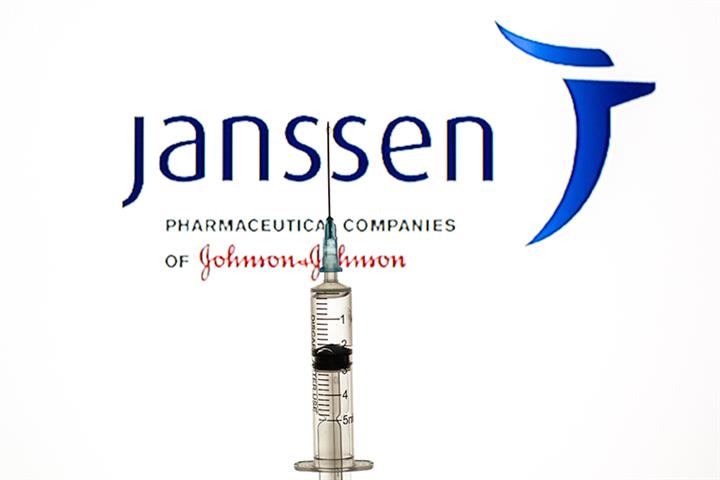 Innovation-Driven Xi'an Janssen Paves Way for New Approach to Treat Hard-to-Beat Diseases
Innovation-Driven Xi'an Janssen Paves Way for New Approach to Treat Hard-to-Beat Diseases(Yicai Global) Nov. 3 -- As a pharmaceutical sector of Johnson and Johnson, Janssen brought its science-rooted, transformative medical innovation approach to a recent health convention, paving the way for a new treatment model of a debilitating intestinal disease.
Janssen was one of the first multinational pharmaceutical companies to enter China in 1985 and as a result has deep insights into the unmet medical needs of Chinese patients, a Xi'an Janssen senior executive told Yicai Global.
Innovation is the driving force and development engine at Xi'an Janssen, the executive said. The firm draws on advanced global experience and supports public welfare organizations to explore innovative service models on the patient side. Through the concerted efforts of patients and doctors, a new diagnosis and treatment model is constructed.
The first meeting of the inflammatory bowel disease alliance was held in China on Sept. 25, attended by such high-profile figures as Chen Minhu, Vice President of the First Affiliated Hospital of Sun Yat-sen University and Cao Qian, Chief Physician of Gastroenterology of Sir Run Run Shaw Hospital Zhejiang University School of Medicine. By leveraging specialist alliances, medical consortiums, and medical communities, we are empowered to expand and penetrate to broader market, serving more IBD patients with provide high-quality, efficient and accessible healthcare solutions and services. An exchange symposium was held the same day focusing on the difficulties and challenges that IBD patients face in diagnosis, treatment, career development as well as their financial burden.
Inflammatory bowel disease (IBD) is a chronic intestinal inflammatory condition that has become increasingly common over the past 20 years in China due to changes in diet, environment and the pace of life. It has become one of the most difficult-to-cure diseases of the digestive system and is becoming increasingly prevalent in the highly developed economic hubs of the Pearl River Delta and Yangtze River Delta. Around 1.5 million Chinese people are expected to suffer from inflammatory enteritis by 2025. Patients are often malnourished to varying degrees because their intestines cannot properly absorb nutrients, such as carbohydrates, protein and fat. They also tend to suffer psychologically as well physically.
The disease is harder to recognize than other intestinal diseases, meaning that diagnosis can be mistaken or delayed. According to China's first survey of IBD patients’ life quality, over 80 percent were misdiagnosed at first due to the disease’s complexity. As a lifelong illness, attention is needed to help IBD patients achieve long-term self-management of health goals.
The IBD alliance was set up in November last year to help train doctors and to establish a first-of-its-kind IBD patient grading diagnosis and treatment system to provide a consultation and referral platform. Xi’an Janssen, which joined the alliance in June, has already made great steps to treat the chronic illness in China. In 2006, the firm introduced the first biologic gram for IBD, opening the era of biologic treatment for inflammatory enteritis in the country. Last year, it launched the world's first interleukin-12/23 monoclonal antibody, Sitanol, bringing new options to patients.
Golden Era for Innovation
Janssen strives to become a contributor to a healthy China and, together with other industry partners, wants to create a disease-free future, the executive said. As China’s innovative drug policy gets more favorable, and more vitality is released, a golden era is beginning in pharmaceutical innovation, he said.
Janssen uses transformative medical innovation that is rooted firmly in science to develop ground-breaking standards and provide epoch-making treatments, he said. In the context of rapid changes in the biopharmaceutical industry, Janssen needs to consider how to bring the next generation of drugs to China, listen to the voices of patients and front-line doctors and be an active partner.
Janssen adheres to the patient-centered approach and focuses on six disease areas, namely, oncology (including blood malignancies and solid tumors), immunology, infectious diseases, neuroscience, pulmonary hypertension and heart disease. Janssen will do its best to fully meet the medical and health needs of hundreds of millions of Chinese patients, through continued research and the introduction of innovative products and solutions.
Xi’an Janssen, which is Johnson & Johnson's largest pharmaceutical subsidiary in China, is committed to building an innovative ecosystem in the country's pharmaceutical industry through internal management and external cooperation, so that more people can equally enjoy the innovations brought about by scientific and technological progress, empowering more patients and medical staff.
A company must also be competitive. Janssen’s competitiveness comes from its insights into medicine and science, and from its R&D strengths. The real win for a pharmaceutical company is to achieve a disease-free future. Janssen believes that with the joint efforts of all parties, it can achieve this grand goal and build a healthy China, he said.
Editor: Kim Taylor